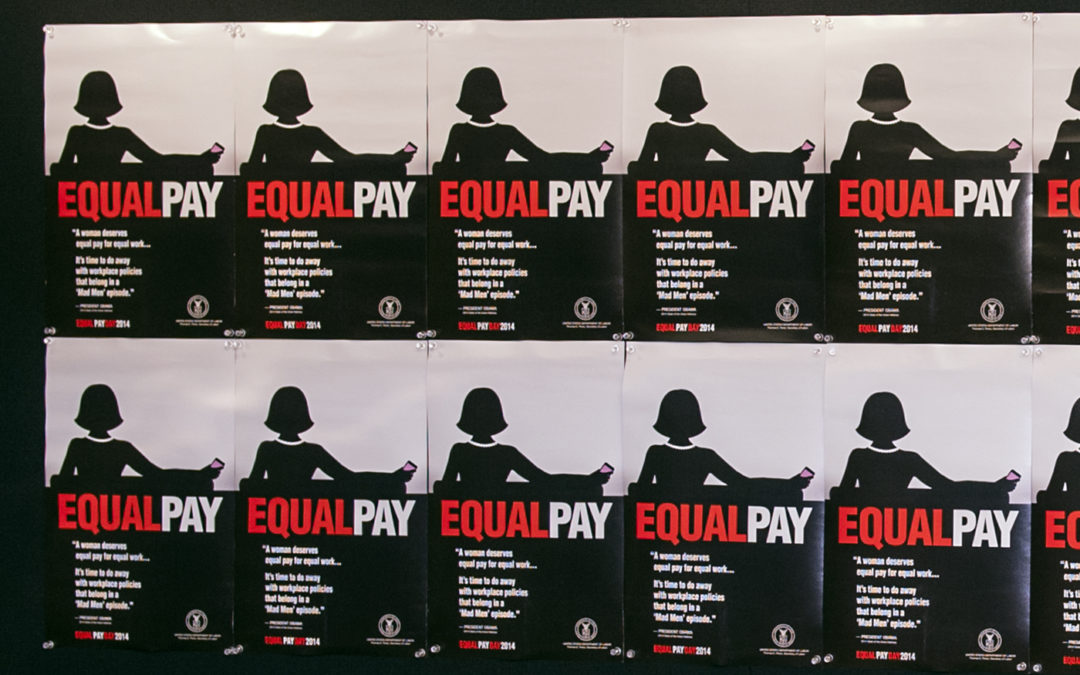Poland’s first ever legislation aiming to reduce the pay gap between women and men has been proposed ahead of International Women’s Day on 8 March.
The bill would compel all companies employing more than 20 people to calculate and inform the Ministry of Family, Labour and Social Policy annually of the percentage difference between wages paid to men and women. If a pay gap exists, the employer would have to take steps to reduce it.
Total gross earnings including bonuses would have to be reported for all employees irrespective of their form of employment. The law would, however, be “soft”, reports Gazeta Wyborcza, with no financial penalties envisaged.
To date, 13 European countries have introduced various kinds of legislation to reduce the gender pay gap, the newspaper notes. But if Poland were to pass such a law it would be the first country in Central and Eastern Europe to do so.
The proposal has been put forward by the Congress of Women, Poland’s leading women’s rights organisation. “The pay gap is a fact, although many people deny its existence,” its president, Anna Karaszewska, told Gazeta Wyborcza.
“The economic situation is quite good, and yet economic deactiviation of women is ongoing, especially among young Poles. Pay levels are one of the factors…that might affect women’s return to the labour market.”
Although many companies declare their support for equality in the workplace, the Congress of Women had difficulty securing a corporate backer for their proposed legislation. Only Ikea agreed to participate, Gazeta Wyborcza reports.
The Congress cites figures from Statistics Poland, a government agency, giving a pay gap between men and women of around 19%. These figures differ markedly from the latest data published by Eurostat, according to which Poland has a gap of 7.2%, the fifth lowest in the European Union.
Eurostat, however, uses the unadjusted gender pay gap, meaning the overall relative difference in the average gross hourly earnings of women and men. The Congress, by contrast, uses the adjusted gender pay gap, which it argues is more accurate as it takes into account the different occupations chosen by women, their education, job experience, and the hours they work, bringing such factors as return from maternity leave into play.
The Eurostat figures also show that Poland is one of the minority of EU countries in which the gender pay gap has been increasing, rising from 5.5% in 2011, when it was the lowest in the bloc.
Yesterday was the EU's #EqualPayDay, which focuses attention on tackling the disparity in pay between men and women.
Poland has the fifth-lowest gender pay gap (7.2%) in the EU, according to @EU_Eurostat. pic.twitter.com/H2z5uWWF07
— Notes from Poland ?? (@notesfrompoland) November 5, 2019
Poland has, though, fared well in other rankings relating to women’s position and rights in the workplace. The country was ranked in eight place in the latest version of The Economist’s Glass-ceiling index, which gives a score for the quality of the environment for working women.
That put Poland well ahead of Britain (23rd), the United States (22nd) and Germany (20th), and behind only the Nordic countries, France and Belgium. The Economist found that women hold 42.5% of managerial positions in Poland, a higher figure than in any other country in the index.
This year Iceland tops our glass-ceiling index ranking, overtaking both Norway and Sweden https://t.co/gJBzVsftOc
— The Economist (@TheEconomist) March 4, 2020
Meanwhile, PwC’s Women in Work index also puts Poland in eighth place, noting that it has made some of the largest improvements since 2000. Female boardroom representation, however, remains very low in Poland (as it does elsewhere in the CEE region), at just 10.0%.
Marta Warat, a sociologist at Kraków’s Jagiellonian University, concurs with the Congress of Women’s diagnosis, telling Notes from Poland that, “despite the fact that we can observe higher participation of both men and women in the labour market, the gender gaps persist, with the employment rate for women 14 percentage points lower compared to men”.
Twice as many women as men work part time, notes Warat, while the pay gap increases among people in the highest-paying jobs. She also points to the “motherhood penalty” faced by women:
While having a child has a positive impact on the situation of men in the labour market, which can be observed in a higher employment rate among them, it has the opposite consequences for women, making them the more vulnerable.
Closing the gender pay gap and improving working conditions for women more broadly “should be treated as a priority,” says Warat. Doing so would not only improve the situation for women, she notes, but also for the economy as a whole, by increasing efficiency and productivity and boosting growth.
Main image credit: US Department of Labor/Wikimedia Commons (under public domain)

Ben Koschalka is a translator, lecturer, and senior editor at Notes from Poland. Originally from Britain, he has lived in Kraków since 2005.



















